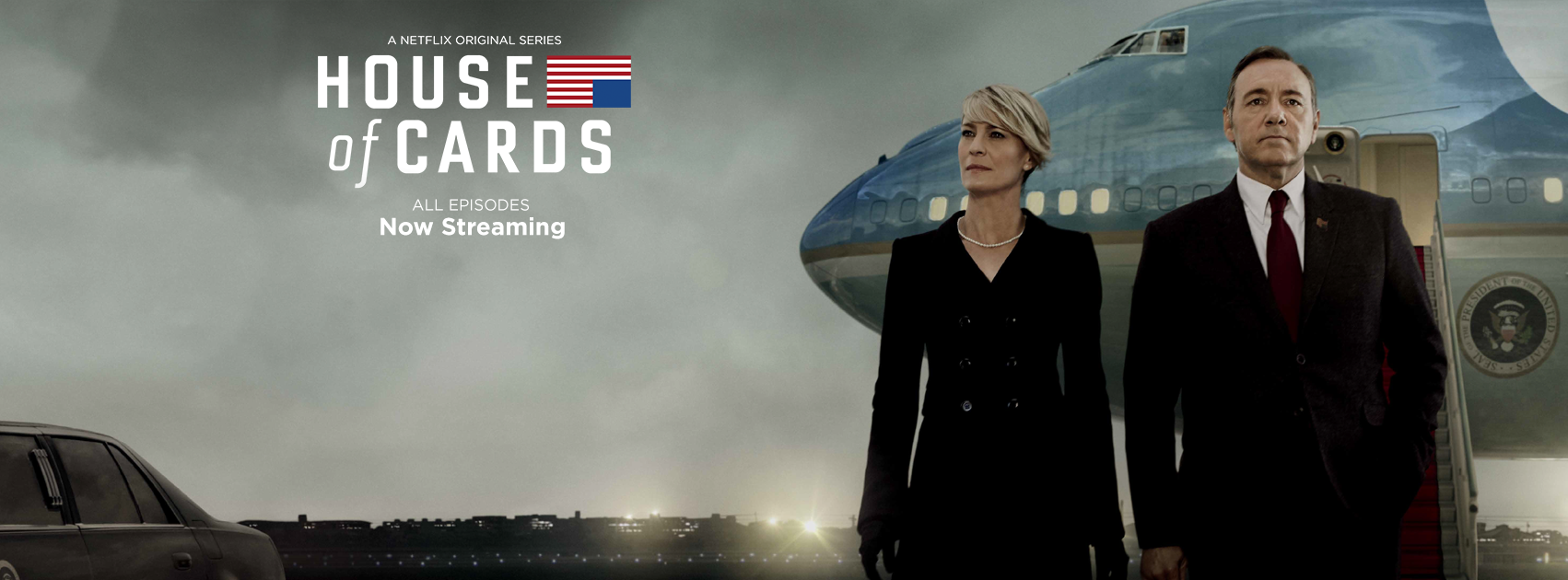By Mitch Huttema (The Cascade) – Email
Print Edition: March 11, 2015

This review contains spoilers.
The Netflix equivalent of primetime television, House of Cards is back again with its third season. Season three departs from the shock factor and absurd behaviour seen in the first two seasons, and focuses instead on the relationship of Francis and Claire Underwood, turning the show from a thrilling ride to a domestic kerfuffle. Without the curveballs of its preceding seasons — and relying almost solely on the unspoken frustrations between the President and First Lady — season three’s ability to keep the viewer coming back is greatly diminished.
Let it be said that season three maintains a similar number of jaw-droppers; however, many of them can be seen coming. Unlike the more surprising moments from previous seasons, where viewers held onto their seats as they were aware of the gut-wrenching chasm they were being forced into, this season felt a little too predictable on the way down.
House of Cards deals with a continuum of Frank Underwood’s (Kevin Spacey) descent in approval ratings, all stemming from his lust for complete power and his unwillingness to compromise. Opening on a rather depressing note that carries on for several episodes, there seems to be no hope for TV’s latest and greatest antihero. In fact, he is nearly invisible in the opening episode of the series, as Doug Stamper (Michael Kelly) takes the lead role.
Most disappointing about this latest installment is how drawn-out everything feels. The relationship struggle, Doug’s recovery, Underwood’s success, and the doings with Russia all seem to get old fairly quickly. Plot-wise, the pacing of this season is lacklustre in comparison to the others. It’s not that the plot events happen any faster or slower, it’s just that they don’t happen as intensely as before.
I would speculate the momentum of the season is much different from those previous because Frank is no longer riding forth in battle for the presidency. Instead, we see him in season three seated behind a desk signing bills, solving (and creating) diplomatic conflicts, and dealing with his relationship. This shift in structure has caused the show on the whole to suffer.
One rather encouraging bit of season three is some of the incredible cinematography. The motivation of the camera is as intentional as ever. We see Frank shrink in size compared to the rest of the frame when a decision is made out of his control. The camera barrels backwards down the hallway as Remy Danton storms down it the opposite way. The camerawork is always smooth, always steady, and always defying the boundaries between CGI and live-action camera work. One of the only times the camera is shaky and handheld is in the final episode in that incredible and unsettling exchange in the hotel between Frank and Claire.
All criticism aside, despite the season being mediocre in comparison to the others, it is still superb TV. House of Cards has always been a cut above the rest and continues to stay that way with this season. While it seems to be more of the same and nothing new in regard to the seasons before, it contains some U-turns and surprises in Frank’s dabblings with absolute power.


